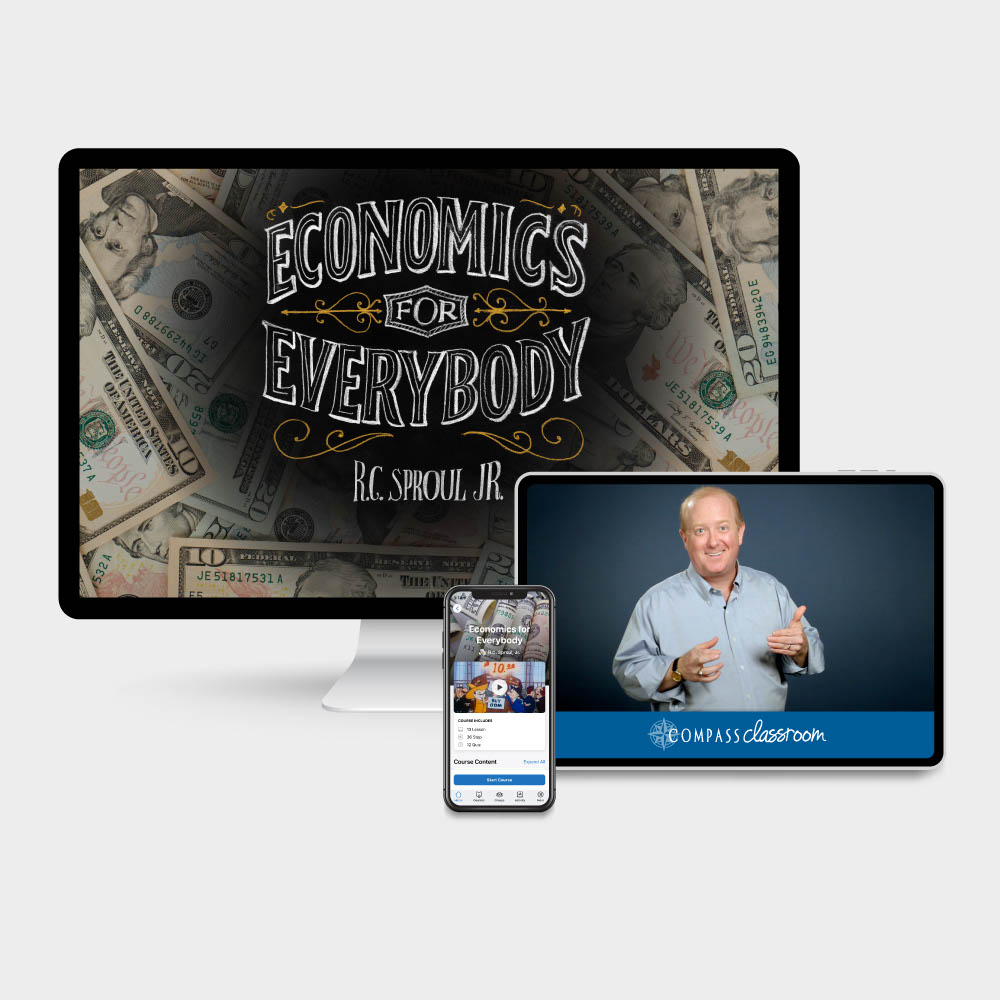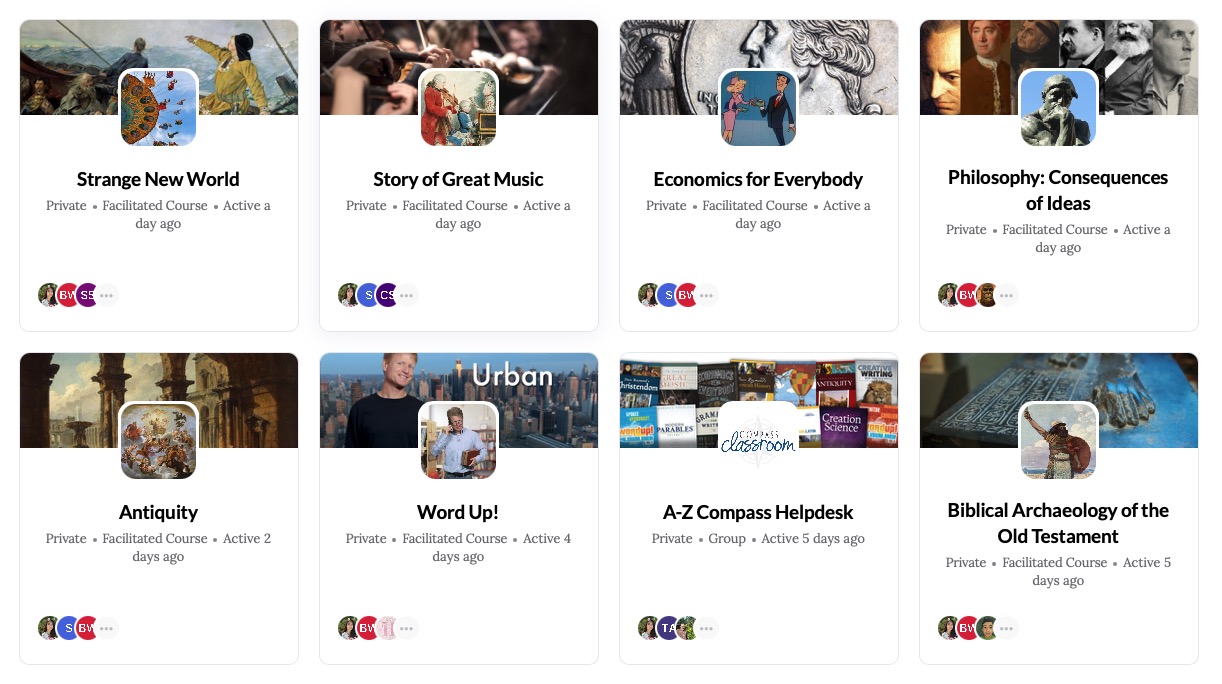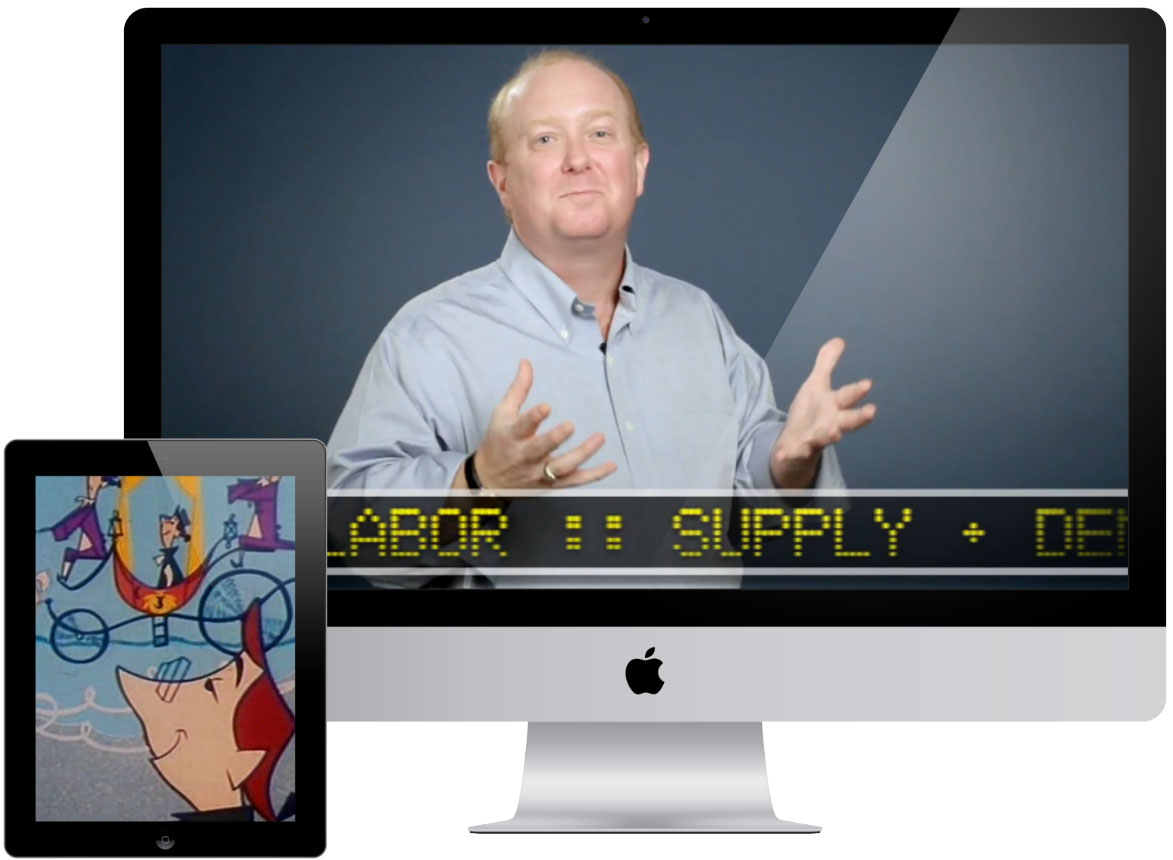
Share this post with another homeschool mom!
This is an excerpt from our Economics for Everybody curriculum.
Economics is a scientific discipline that applies to the choices we make in everyday life.
Some people divide economics into two areas, the big picture and the little picture. They say that the principles that apply in one area do not apply in the other.
But this isn’t true: the economic principles that apply to individuals also apply to large, national economies. Why is this? Because all national economies are made up of individual people making individual choices. Economics always comes down to the choices of individuals.
Economics is a scientific study of how God ordered the world.
Sometimes it’s presented in a boring, mathematical way, but this does a disservice to God and His creation. God made economics an interesting and important part of the created order. It’s the way that it’s approached that often makes it boring. The truth is that God created economics to help man be a better steward of creation.



The first and most basic economic principle is this: God owns everything. God created the world ex nihilo, or out of nothing. Since it is His creation, it is also His possession and He can do with it as He pleases.
God’s creation of the world out of nothing is a demonstration of the following things:
- His sovereign power: God can choose to do whatever He wants.
- His sovereign authority: God can choose to direct His creation to whatever end He wants.
God’s creation has as its purpose the manifestation of God’s glory. We can therefore learn specific things about God by looking at the creation:
- God governs the world and exercises a purposeful providence over it.
- God created natural law to order His creation and to provide a framework within which man can live.
- God does all these things not only to manifest his glory, but also to bless man.
In seeking to manifest His glory, God ultimately acts in His own self-interest – which is also in the best interest of man. God therefore created man to reflect His image. As a result, certain attributes of God are mirrored in man’s attributes:
- Man acts with purpose.
- Man acts in his own self-interest.
- Man makes choices.
- Man acts rationally.
God designed man to do everything under His sovereign authority and for His glory. He then gave the first man Adam specific commands in the Garden of Eden. This is the cultural or dominion mandate.
And God blessed them. And God said to them, “Be fruitful and multiply and fill the earth and subdue it, and have dominion over the fish of the sea and over the birds of the heavens and over every living thing that moves on the earth.” And God said, “Behold, I have given you every plant yielding seed that is on the face of all the earth, and every tree with seed in its fruit. You shall have them for food. And to every beast of the earth and to every bird of the heavens and to everything that creeps on the earth, everything that has the breath of life, I have given every green plant for food.” And it was so.
Genesis 1:28-30 (ESV)
The LORD God took the man and put him in the garden of Eden to work it and keep it. And the LORD God commanded the man, saying, “You may surely eat of every tree of the garden, but of the tree of the knowledge of good and evil you shall not eat, for in the day that you eat of it you shall surely die.”
Genesis 2:15-17 (ESV)
Since God owns all things, by putting man in charge of creation, God made man His steward. A steward is one who, under the authority of the owner, manages his property for the owner’s benefit and good. God gave man wisdom to be a steward, wisdom that includes discernment in making choices in light of natural limitations.
One of the first stewardship activities was Adam naming the animals. Adam had to discern the nature of each animal and make choices to divide them into categories. Adam showed authority over the animals by naming them, an act of control and dominion (just as parents name their own children).
Adam recognized the limitations within each animal – some have two legs, some four; some swim, some fly, etc. – and named them accordingly. In one sense, natural limitations are part of the created order. There are limitations of time and space. You can’t plant two different plants in exactly the same spot. You can’t mine metals in the same place you grow a garden.
God gave man the ability to make wise choices in the stewardship of His creation in light of these natural limitations. In other words, some places are better for mining and some for agriculture.
Another important aspect of being a good steward is to recognize there are economic laws in the world.
Economics is man making choices as to how to best use his limited resources in order to be a good steward before God.
There are similarities between physical laws and economic laws, but there are also differences. Physical laws deal with inanimate objects and forces, whereas economic laws deal with living humans and their choices and actions.
Economics is deduced from certain assumptions just like geometry. In geometry, one must assume the reality of a point, a line and a plane. From those assumptions, one can draw circles, squares, or triangles, which in turn can be used to build real structures, like buildings and bridges. When an assumption is true, it works itself out in a very powerful way in the real world.
Economic principles are also derived from some basic assumptions. Those principles provide the foundation for all the economic activity of the world. Two examples include:
- Gresham’s Law says that if one tries to replace more valuable money with less valuable money (such as replacing gold with paper), then people will horde the good money (gold) and take it out of circulation to keep it. In effect, bad money drives out good.
- The Division of Labor teaches there is an increase in productivity when work is divided up into specific callings and specializations.
Economics is also related to morality. Because economics deals with human action and the choices we make, it is always going to be related to ethical issues. God’s commands help us to make sound economic decisions.
Economics is not something that can be completely understood apart from the word of God. But, like geometry, one does not have to know God or understand Him to employ economic principles with some effectiveness. However, unless the moral and ethical aspects of economics are recognized and ultimately acted upon, long-term economic health is impossible.
Why study economics?
- We must be obedient to the cultural mandate as children of Adam and Eve.
- We can grow in our prosperity if we follow the economic principles God created for our benefit.
- God expects us to use that prosperity for the growth of His Kingdom both locally and abroad.
Ultimately, understanding economics helps us to fulfill the Great Commission.
-
 Economics for EverybodyFrom: $116.00
Economics for EverybodyFrom: $116.00 -
 Economics for Everybody Study Guide$16.00 – $20.00Price range: $16.00 through $20.00
Economics for Everybody Study Guide$16.00 – $20.00Price range: $16.00 through $20.00 -
 Basic Economics$75.00
Basic Economics$75.00
Share this post with another homeschool mom!













